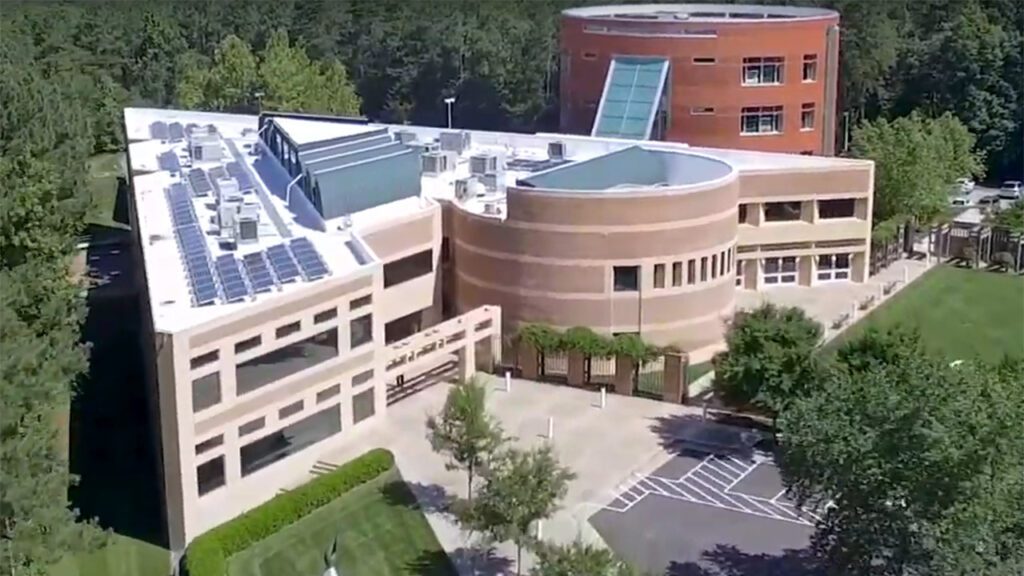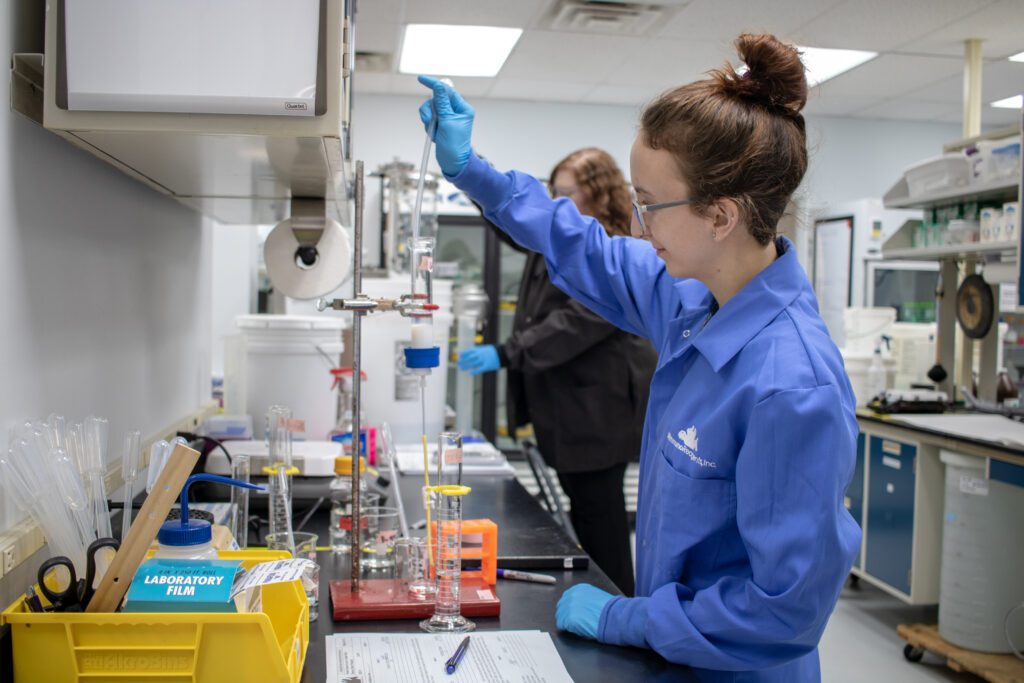A guest post by Doug Edgeton, president and CEO of the North Carolina Biotechnology Center.
We’re marking two big life sciences anniversaries this year in North Carolina.
One is that my organization, the North Carolina Biotechnology Center, is turning 40 years old. NCBiotech was founded in 1984, the first organization of its kind, as a catalyst for technology-based economic development in life sciences.
The second anniversary is that of the NC Life Sciences Organization (NCLifeSci), which turns 30 years old this year. NCLifeSci was founded in 1994 as the trade association and membership organization for NC’s life sciences industry.
NCBiotech and NCLifeSci often work together for a common purpose: to encourage the growth of life sciences companies and support the development of a strong life sciences workforce in North Carolina.
For us at NCBiotech, as we celebrate our important milestone, we’re looking at where we have been, how far we have come in North Carolina as a life sciences hub, and where we are headed next.
While NCBiotech and our programs have evolved over the years to meet industry needs, NCBiotech’s mission to grow the life sciences in North Carolina still is the same.
We are grateful to those whose vision formed NCBiotech 40 years ago and to those who continued funding us since then so that we can achieve our vision of “North Carolina: A global life sciences leader.”
Many thanks to our partners, to NCLifeSci, and the others in our life sciences ecosystem for the key roles they play in developing North Carolina as a robust life sciences hub.
Impact of North Carolina life sciences
North Carolina’s life sciences ecosystem has grown from about companies in 1984 to more than 830 today, employing about 75,000 people and generating $88.3 billion in economic activity statewide.
The life sciences sector generates $2.4 billion in combined state and local government revenue and provides well-paying careers, with an average annual wage of $112,000, nearly double that of the state’s overall private sector workforce.
North Carolina has strengths in biomanufacturing, contract research and testing, ag tech, research and development, and more.
In a notable recent milestone, the life sciences industry in North Carolina played a vital role in helping the world address the challenges we faced during the COVID-19 pandemic. North Carolina companies contributed to developing, manufacturing and packaging vaccines, expediting the delivery of vital testing kits, producing personal protective clothing and equipment, and the list goes on.
In fact, the U.S. Office of Science and Technology Policy praised North Carolina for its response and highlighted our state as an example of best practices to fight future pandemics. North Carolina’s role in addressing the pandemic highlights the strength and breadth of the partnerships and collaboration on which our life sciences community is based.
Another important biotechnology milestone in our recent past has been the advances in gene and cell therapy. This evolving technology has been transformational for patients suffering from genetic diseases, potentially providing curative benefits. North Carolina has been at the heart of this transformation with 51 gene and cell therapy companies in our state. North Carolina has many brilliant scientists.
One scientist has been at the forefront of breakthrough science, making significant contributions in gene and cell therapy. Dr. Jude Samulski’s research has transformed the field of genetic medicine, giving rise to adeno associated virus (AAV) gene therapies and having a profound impact on gene therapy with numerous spinout companies resulting.
NCBiotech programs spur innovation
Regarding innovation, during FY2023, NCBiotech deployed $8.28M in grants and loans to seed innovation statewide.
As evidence of the strong impact of our funding, since 1984, for every $1 invested in grants, NCBiotech grant recipients have later attracted an additional $73 of follow-on funding, totaling more than $4.9B.
Similarly, for every $1 in loans, NCBiotech loan portfolio companies have later raised an additional $140 in other sources of funding, totaling $7.8B.
Another program that supports innovation statewide is called the NCBiotech Venture Challenge. This pitch competition provides opportunities for startups outside Research Triangle Park to compete for funding, mentoring, and resources to advance their businesses and make progress towards commercialization.
Since 2020, there have been 101 company expansion and recruitment announcements totaling $11.37B invested and 11,866 jobs announced. These announcements cover a broad cross-section of life sciences subsectors. But our growth in biomanufacturing is noteworthy.
In Dec. 2023, JLL recognized Raleigh-Durham as the #1 biomanufacturing market in the U.S., highlighting our strong presence of contract manufacturing organizations, research institutions, talent, and industry collaborations.
In fact, so far in 2024, we have had major investment announcements from FUJIFILM Diosynth Biotechnologies, Kyowa Kirin, Schott Pharma, and Novo Nordisk.
North Carolina has always been progressive and forward-thinking when it comes to workforce development. Our state is fortunate to have an extensive training infrastructure, including our three top-tier research universities, 58 community colleges, the Biomanufacturing Training and Education Center (BTEC) at North Carolina State University, Biomanufacturing Research Institute and Technology Enterprise (BRITE), and more.
North Carolina’s spirit of collaboration
Collaboration has been a key differentiator for North Carolina life sciences. A notable example of collaboration is a coalition, including community colleges, historically Black colleges and universities, and other industry partners, which won a $25 million award from the U.S. Economic Development Administration’s Build Back Better Regional Challenge.
The Accelerate NC – Life Sciences Manufacturing award is increasing awareness of and access to training and job opportunities across the state, among underserved populations in rural, distressed regions in North Carolina.
We are grateful to our industry partners that have supported Accelerate NC, including Novo Nordisk, Amgen, FUJIFILM Diosynth Biotechnologies, Catalent, Thermo Fisher Scientific and many more. Each member of our life sciences ecosystem plays a role in building a better tomorrow.
I am proud of the roles that NCBiotech and NCLifeSci have played in helping shape the trajectory of life sciences growth in our state. Our teams are optimistic for the many opportunities that lie ahead.




